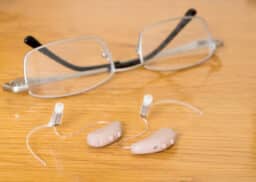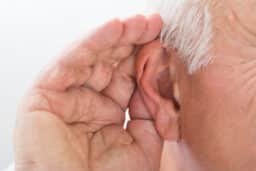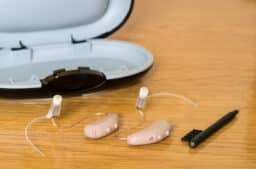Can Cognitive Reframing Help Manage Your Tinnitus?

Approximately 10% of adults worldwide have experienced tinnitus lasting more than three months. Tinnitus refers to the presence of ringing, buzzing or humming in the ears without an external source, a symptom that can significantly impact daily life and well-being. Fortunately, there are effective strategies to manage tinnitus. One strategy is called cognitive reframing, a…
What to Expect During the Hearing Aid Adjustment Period

Hearing aids significantly enhance communication and enrich experiences for individuals with hearing loss. However, it’s crucial to acknowledge the adjustment period they entail, requiring patience and understanding. For the 28.8 million people who could benefit from hearing aids, comprehending what to anticipate during this phase can alleviate concerns and facilitate a smoother transition if they…
All About Babies and Hearing Aids

For many parents, learning that their baby might require hearing aids can evoke a range of emotions. Yet, becoming familiar with the role these devices play in a child’s growth and strategies to ensure they are used effectively can be comforting. Follow these guidelines to help your infant benefit fully from their hearing aids. The…
Avoiding Common Pitfalls: Tips for New Hearing Aid Users

In the United States alone, approximately 28.8 million adults could significantly improve their quality of life with hearing aids. Embracing new hearing aids marks an exciting chapter, but understanding the best practices associated with their use is paramount to fully reap their benefits. Let’s explore the benefits of hearing aids, some common missteps made by…
Why You Should Reconsider Hearing Aids

Hearing loss is a common condition affecting approximately 15% of U.S. adults. Those with untreated hearing loss frequently experience difficulty communicating with those around them, mental fatigue and more. Unfortunately, even with the adverse effects, people with hearing loss wait an average of seven years before seeking help. Hearing aids are one excellent way to…
How to Know If Your Hearing Aid Is Functioning Improperly and What To Do

Nearly 28.8 million adults in the U.S. could benefit from the use of hearing aids. Yet, people often wait several years to accept that they may need them for various reasons, including being intimidated by their function. Signs of Poor Function If you were resistant to the thought of hearing aids and are now encountering…
Causes of Rapid Hearing Loss

Sudden Sensorineural Hearing Loss, also known as SSHL, is an abrupt loss of hearing that frequently affects only one ear. This condition can manifest as anything from a slight loss to complete loss and may happen all at once or over several days. Should you experience any signs of SSHL, seeing a hearing specialist urgently…
What To Expect During a Newborn Hearing Screening

Newborn children use their hearing to learn speech and understand the world around them. Approximately 1.7 per 1000 infants screened in the United States are born with hearing loss in one or both ears. Because children rely so heavily on their hearing for learning, prompt identification of infant hearing loss is crucial for early intervention…
What Infections Are Linked To Hearing Loss?

When you think of common causes of hearing loss, you’re likely picturing aging and prolonged exposure to loud noises from heavy machinery or concerts at the Jessye Norman Amphitheatre. One significant cause of hearing loss you may not have considered is infection. Infection-induced hearing loss can occur in one or both ears and is generally…
How Cleaning Hearing Aids Prevents Infection

Your hearing aids spend most of their time in the cool, moist environment your ear creates. It’s a perfect environment for bacteria and fungus that could cause ear irritation and infection. That’s why it’s important to maintain strong cleaning routines for your hearing aids to prevent infection. Types of Infections About seven percent of adults…